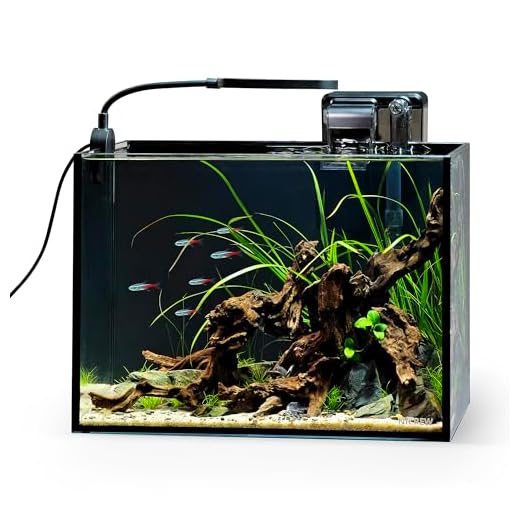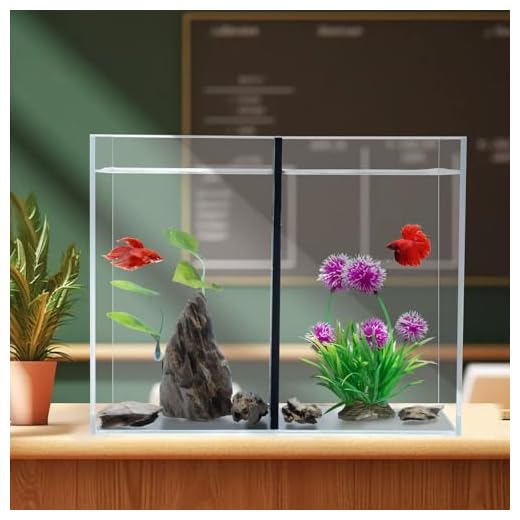Reef
Blog
Can you put two betta fish in the same tank

A common misconception among beginners in the fishkeeping hobby is that betta fish, also known as Siamese fighting fish, can be housed together in the same tank. However, the truth is that betta fish are highly territorial and aggressive towards their own kind.
Betta fish have been selectively bred for centuries to enhance their vibrant colors and flowing fins, but this process has also made them extremely aggressive towards other bettas, especially males. Their aggression can result in fin damage, stress, and even death.
While it is theoretically possible to keep two female bettas together, it is not recommended for beginners as it requires a larger tank with plenty of hiding spots and a careful selection of compatible individuals. Even in this case, females can sometimes become territorial and it is important to closely monitor their behavior.
It is important to note that males should NEVER be kept together, as their aggressive nature will almost certainly lead to injuries or death.
If you wish to have multiple betta fish in the same tank, it is best to opt for a divided aquarium where each fish has its own separate section. This way, bettas can coexist without physical contact, reducing the risk of aggression and stress.
Overall, it is crucial to understand the nature of betta fish and provide them with suitable living conditions to ensure their health and well-being. Keeping them in separate tanks or properly divided spaces is the best way to prevent unnecessary harm and create a harmonious environment for these beautiful and captivating fish.
Can You House Two Betta Fish Together?
Many fish owners wonder if they can keep two betta fish together in the same tank. Betta fish, also known as Siamese fighting fish, are known for their vibrant colors and long, flowing fins. However, despite their beauty, bettas are notorious for their aggression towards other fish, including their own kind.
Male Betta Fish
Male betta fish are especially territorial and are known to engage in fierce fights with other males. They have long been bred for their fighting abilities, which has led to their aggressive nature. Therefore, housing two male bettas together is highly discouraged. They will most likely attack each other, resulting in injuries or even death.
Female Betta Fish
Female betta fish, on the other hand, can sometimes coexist peacefully in a larger tank with plenty of hiding spots. It is recommended to have at least four females, known as a sorority, as this can help spread out aggression and prevent one female from being singled out. However, even in a sorority, there is a potential for aggression and careful monitoring is necessary.
In conclusion, while it may be possible to house multiple female betta fish together, it is not advisable to keep two male bettas or a male and female betta in the same tank. Ensuring a peaceful and stress-free environment for your bettas should always be a top priority.
Compatibility and Aggression
When considering putting two betta fish in the same tank, it is important to understand the compatibility and aggression issues that may arise.
Betta fish, also known as Siamese fighting fish, are notorious for their aggressive nature. In the wild, male bettas will fight each other for territory and mating rights. This aggressive behavior has been bred into domesticated betta fish, making them ill-suited for cohabitation.
Males vs Females
Male betta fish are especially territorial and should never be housed together. When two male bettas are placed in the same tank, they will almost certainly fight, often resulting in severe injury or death. It is crucial to keep male bettas separated.
On the other hand, female bettas can sometimes be housed together in a larger tank with plenty of hiding spots. However, even female bettas can display aggressive behavior towards each other, so it is important to monitor their interactions closely.
Bettas with Other Fish
When it comes to keeping bettas with other species of fish, compatibility can vary. Some species of fish, such as neon tetras or guppies, can coexist peacefully with bettas. These fish have similar water temperature and pH requirements and are peaceful enough not to trigger betta aggression.
However, it is important to research and choose tank mates carefully as some fish, like fin-nipping species, may provoke aggression in the betta. Additionally, some fish may nip at the betta’s long fins, causing stress and potential injury.
It is generally recommended to keep bettas in a species-specific tank or choose tank mates that are known to be compatible and non-aggressive. Proper tank size, decorations, and hiding spots are crucial to reducing stress and aggression among tank mates.
In conclusion, betta fish are best kept alone or with carefully chosen tankmates. Cohabitation should be approached with caution and proper research done beforehand to ensure the well-being of the fish and prevent aggression-related issues.
Size and Space Requirements
When considering whether or not to put two betta fish in the same tank, it is important to consider the size and space requirements for these fish. Betta fish require a minimum of 2.5 gallons of water per fish, and they need enough space to swim and explore.
Putting two betta fish in a small tank can lead to aggression and territorial behavior, as the fish may feel overcrowded and stressed. It is essential to provide each betta fish with enough room to establish its territory and retreat to its own space when needed.
If you are planning to house multiple betta fish together, it is recommended to provide a tank that is divided into sections, with each fish having its own section. This will ensure that each fish has enough space and reduces the risk of aggression and fighting.
Additionally, it is important to provide proper filtration and maintain good water quality in the tank to ensure the health and well-being of the betta fish. Regular water changes and monitoring of water parameters are necessary in a shared tank.
Overall, it is best to provide each betta fish with its own tank to ensure their individual needs and requirements are met. Putting two betta fish in the same tank can be risky and may lead to stress, aggression, and potential harm to the fish.
Gender Considerations
When considering putting two betta fish in the same tank, the gender of the fish is an important factor to take into account. Betta fish are known for their aggressive nature and territorial behavior, especially males. Therefore, it is generally not recommended to house two male bettas together in the same tank.
Male bettas are highly territorial and can become aggressive towards other males, especially if they perceive them as a threat. They may engage in fights that can lead to serious injuries or even death. This behavior is instinctual for male bettas and cannot be trained or changed.
On the other hand, female bettas can sometimes coexist peacefully in the same tank if certain conditions are met. It is essential to have a tank size of at least 10 gallons to provide enough space for each betta to establish their territories. Adding hiding places and visual barriers like plants and decorations can help reduce aggression and territorial disputes.
Even when housing female bettas together, it is important to monitor them closely for signs of aggression. If any fish shows signs of stress, injury, or constant fighting, they should be separated immediately to avoid further harm.
It is worth noting that not all female bettas will cohabit peacefully, as betta fish can have individual temperaments. Some may be more aggressive or dominant than others, leading to conflicts. Therefore, it is crucial to be prepared to separate the fish if needed.
Additionally, it is essential not to house a male and female betta together unless you are prepared to breed them. Mating bettas is a complex process that requires specific conditions, separate tanks, and extensive knowledge to ensure the health and well-being of both fish.
Summary:
- Males bettas should not be housed together due to their aggressive nature.
- Females bettas can sometimes coexist peacefully, given certain conditions.
- Monitor bettas closely for signs of aggression and separate them if necessary.
- Do not house male and female bettas together unless you are prepared to breed them.
Multiple Betta Tanks
If you are interested in keeping multiple betta fish, it is important to provide each fish with its own individual tank. Betta fish are known for their aggressive nature and they are territorial creatures, especially males. Placing two betta fish in the same tank can lead to fighting, injury, and even death.
Setting up multiple betta tanks allows each fish to have its own environment and reduces the risk of aggression. Each tank can be decorated to suit the preferences of each betta fish, providing ample hiding spots, plants, and other decorations.
When choosing the appropriate tank size for each betta, it is recommended to have at least a 5-gallon tank per fish. This ensures there is enough space for each fish to swim and explore. Additionally, maintaining proper water parameters, including temperature, pH levels, and filtration, is crucial for the health and well-being of each individual fish.
Feeding multiple betta fish can be done individually. It is important to monitor the feeding process to ensure each fish receives its fair share of food. Overfeeding can lead to health issues and water quality problems. Feed each fish a small amount of high-quality betta fish food once or twice a day, and remove any uneaten food within a few minutes.
When it comes to cleaning and maintenance, each betta tank should be cleaned separately. Regular water changes, substrate cleaning, and filter maintenance are necessary to maintain optimal water quality. Avoid cross-contamination by using separate equipment for each tank.
In conclusion, keeping multiple betta fish in separate tanks is the safest and most responsible way to ensure the well-being of each fish. By providing each betta with its own individual environment, you can reduce the risk of aggression and promote a healthy and stress-free life for your fish.
Question & Answer
Is it possible to put two betta fish in the same tank?
No, it is not recommended to put two betta fish in the same tank.
Why can’t two betta fish be kept in the same tank?
Betta fish are highly territorial and will fight with each other if they are placed in the same tank. They are known for their aggression and will sometimes fight to the death.
What will happen if I put two betta fish together?
If you put two betta fish together, they will most likely fight with each other. They will flare their fins, nip at each other, and can cause serious injuries or even death. It is best to keep them separate.
Can betta fish live together peacefully?
No, betta fish are solitary creatures and prefer to live alone. They do not typically get along with other fish, especially other bettas. It is best to keep them in separate tanks to avoid any aggression or fighting.





